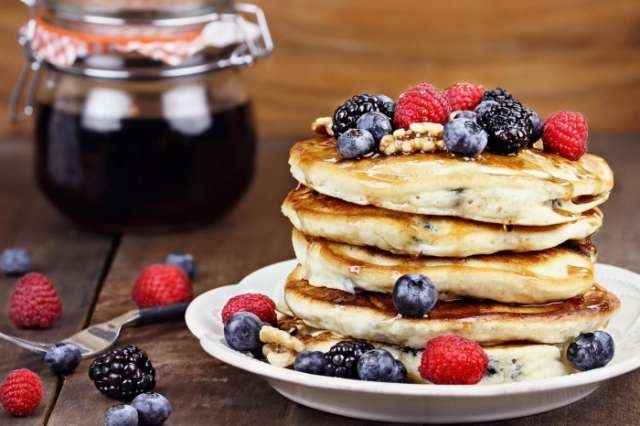“Sugar is vital for your brain health - which is the biggest guzzler of the sweet stuff in your body,” Dr Drew Ramsay wrote for Well + Good.
He explains that our brains use up 400 calories of glucose every day, but that doesn’t mean scoffing two chocolate bars is going to give your brainpower a boost.
It’s all about where you get your sugar from.
Fructose - the sugar found in many artificial, processed foods - isn’t much use to your body. But natural sugars - those found in honey, maple syrup and fruit, for example - can help boost your brain health.
There’s been much debate recently over whether naturally occurring sugars are really any better for you than refined ones, but Ramsay believes they are.
Even so, it’s best to eat whole fruit than juice. This is because the latter causes a much larger spike in insulin, which in turn leads to your body going into fat storage mode. Because an apple has more fibre and you consume it more slowly than a glass of juice, it’s a better choice.
It’s also worth noting that of the 400 calories your brain needs, only about a quarter of it should come from your daily sugar intake - NHS guidelines recommend adults should have no more than 30g of free sugars a day, which is roughly seven sugar cubes.
The rest should come from carbohydrates, which yes, are also important.
When thinking about fuelling your brain with sugar, you need to know how much sugar there is in, well, everything. A medium-sized banana, for example, contains around 14g of naturally-occurring sugar, and even kale’s main molecule is sugar, according to Ramsey.
But bananas and kale are foods with low glycaemic indexes, so release energy slowly and won’t spike your insulin levels.
It’s also worth noting that your brain can run on ketones too, “which you make from the stored energy in fat during times of fasting or eating less than 60 grams of carbs per day,” Ramsey says.
As with carbs and fat, it’s important not to completely demonise any one food group - a little bit of sugar, if it’s the right kind, can help your brain perform to its best ability.
More about: #sugar
















































